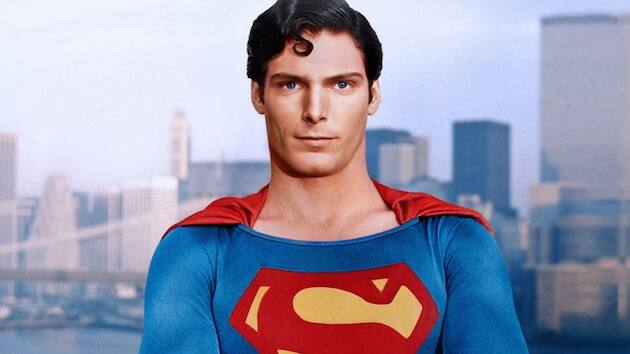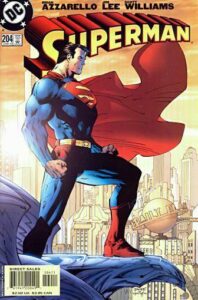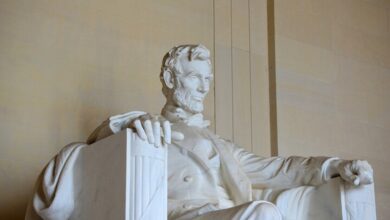The hidden truth behind Superman

I’ve never been a huge fan of Superman. The Man of Steel was always too squeaky clean for me. Too perfect.
I liked superheroes who had edges (The Incredible Hulk), darkness (Batman) and problems (Spiderman and Ironman).

That said, I’ve always appreciated Superman. There is something fundamentally good and quintessentially American about him. This is why it got me thinking when I stumbled on an interview Superman director Richard Donner gave in 1978.
In the interview, Donner, who died in 2021, talks about what Superman stands for.
“He’s a lot of what America was a long time ago. I’m a very liberal human being in my philosophies and my politics, and I find myself, in an odd sort of way, looking and respecting the conservative attitude of what Superman stands for now. Because I think I see a lot of my philosophies in application now and I’m not very happy with them, and I almost wish I could go back to once was, and what America once was.”
I love the clip, and not just because Donner looks like a modern actor playing a director from the 1970s, with the dark glasses, reddish-brown jacket, folded fingers, and mullet.
Donner is talking about the philosophy of Superman, and something that America lost somewhere along the way. We don’t know exactly what Donner means because he offers no elaboration (at least that I can find).
But I think he was talking about an old-fashioned idea: individual character. Superheroes are by definition powerful, but what made Superman so unique among superheroes wasn’t that he was really powerful; it was that he was good.
As my colleague Dan Sanchez pointed out, many today take issue with Superman for the same reason I cited at the beginning: he’s just too perfect. But this was a feature of Superman, not a bug. One of the reasons he thrilled audiences was that he taught us how to be good.
In a world increasingly consumed by cynicism, envy, and nihilism, Superman taught us what virtue looked like, Sanchez writes.
“…a core part of the human spirit will always be drawn to, and be able to learn from, stories that inspire us to become better versions of ourselves. And this inner core is as impervious to deconstruction as Superman is to bullets.
 So, DC, if you want to make Superman relevant to ‘modern audiences’ (and make a lot of money in the process), reconnect him to what has always made him relevant to the human heart that beats in all audiences. Make him virtuous, resolute, and strong, inside and out. These are times that call for heroism. To rise to that challenge, we need stories of heroes who act like heroes to inspire us.”
So, DC, if you want to make Superman relevant to ‘modern audiences’ (and make a lot of money in the process), reconnect him to what has always made him relevant to the human heart that beats in all audiences. Make him virtuous, resolute, and strong, inside and out. These are times that call for heroism. To rise to that challenge, we need stories of heroes who act like heroes to inspire us.”
This, I think, is part of what Donner was getting at.
Superman stood for “truth, justice, and the American way.” These are concepts that are dying. You might think I’m being hyperbolic here, but consider this.
We live during a period that has been dubbed the post-truth era. The idea of justice is slowly being replaced by “social justice.” And as far as “the American way,” DC literally dropped the phrase and replaced it with “a better tomorrow.”
It bears asking, of course. What is the American way?
Many will contend that American is just a country, but I disagree. America is an idea. The great Christian philosopher G.K. Chesterton agreed with me.
“America is the only nation in the world that is founded on a creed. That creed is set forth with dogmatic and even theological lucidity in the Declaration of Independence; perhaps the only piece of practical politics that is also theoretical politics and also great literature,” Chesterton wrote in What I Saw in America. “It enunciates that all men are equal in their claim to justice, that governments exist to give them that justice, and that their authority is for that reason just.”
READ: Black Panther movie set was like church
Many think liberty is at the heart of Americanism, and it is. But if liberty is America’s left hand, individualism is its right.
“Individualism is a philosophy that views people first and foremost as unique individuals rather than as members of a group,” write Sanchez and FEE managing editor Patrick Carroll. “It emphasizes the importance of independence, individuality, and autonomy.”
This, I think, is the other part of what Donner was getting at.
Superman wasn’t important because he could pick up buildings and deflect bullets with his chest. He was important because he taught us how to be better individuals—and that’s what the world desperately needs.
–Foundation for Economic Education | Jon.Miltimore | Used with permission
Illustration: Alex Ross. This file is licensed under the Creative Commons Attribution-Share Alike 4.0 International license.








